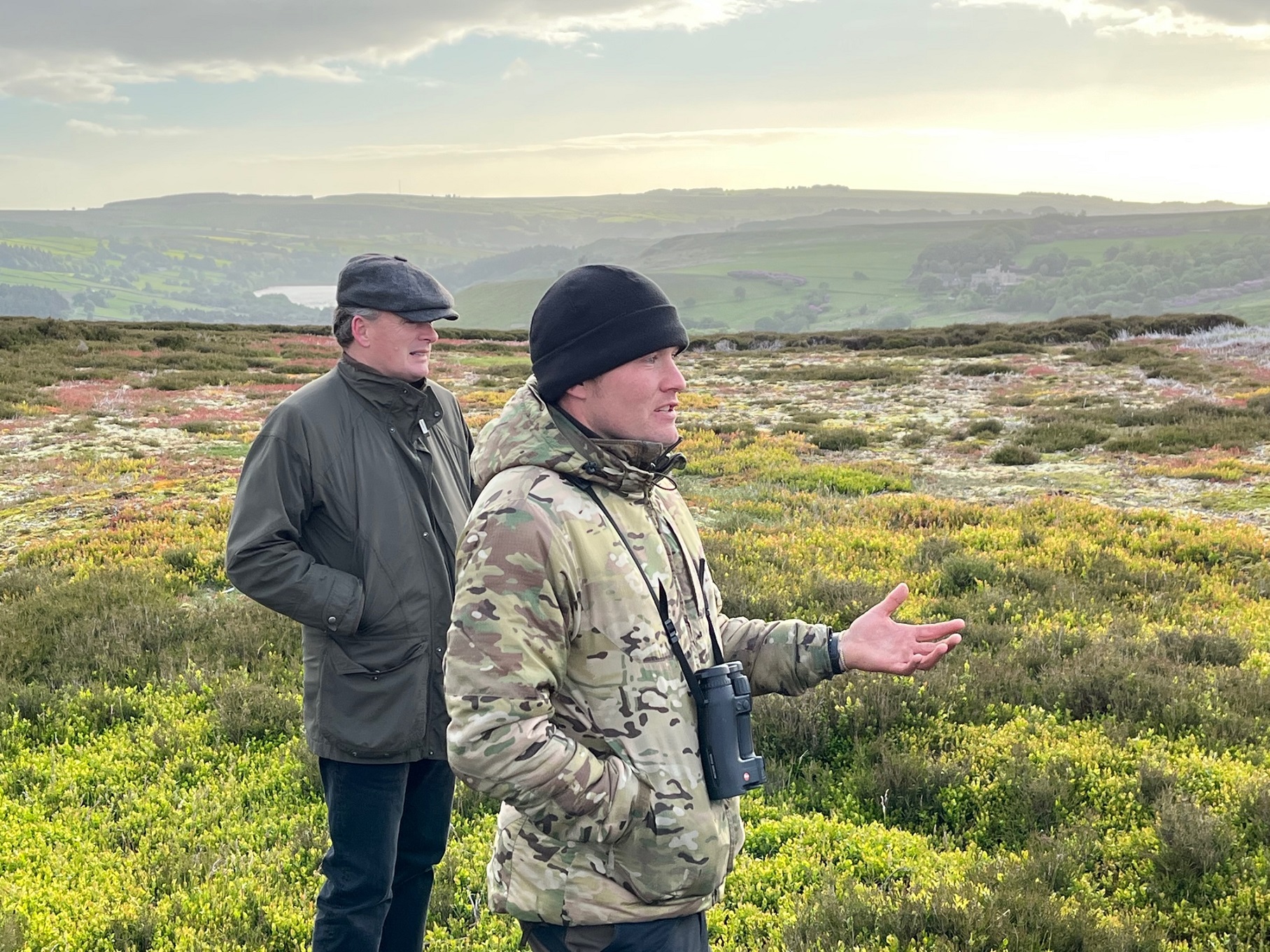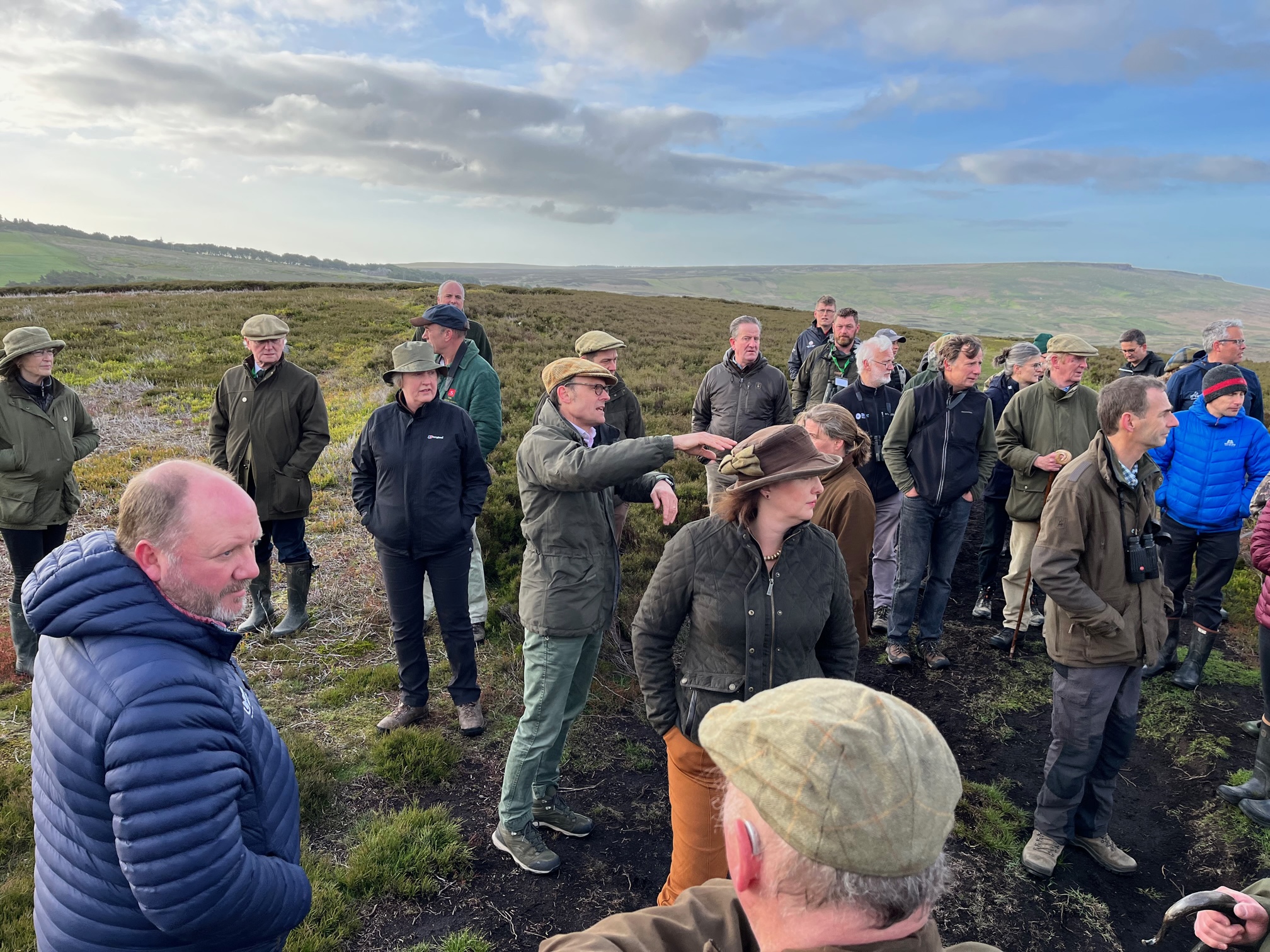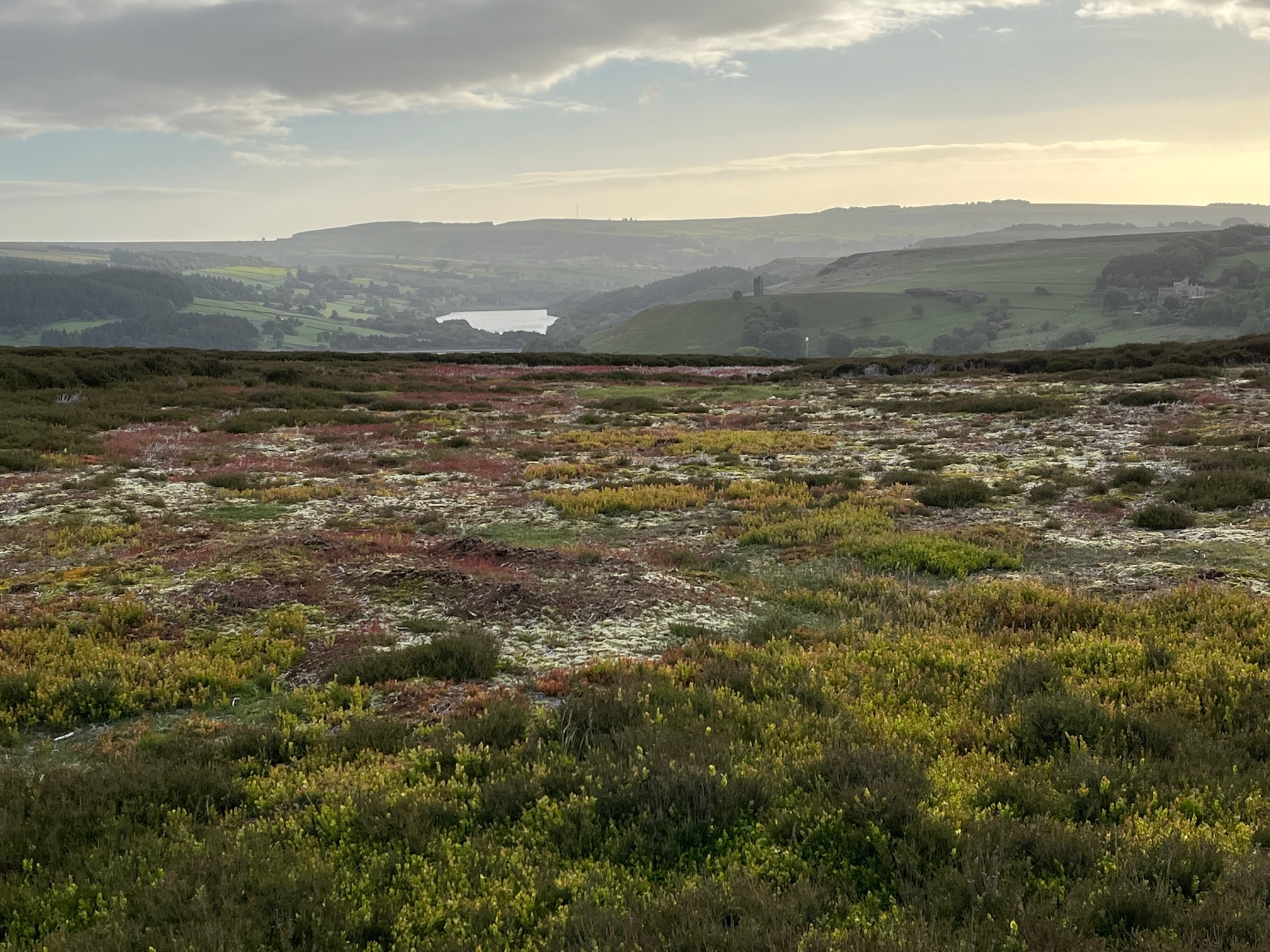National Parks Minister says we must listen to the Working Conservationists on the ground, if we are going to tackle climate change and biodiversity loss
“One of the reasons I’m here is to hear the voice of the private land managers on the ground who have delivered extraordinary results," Lord Benyon
A landmark event coordinated by the Game & Wildlife Conservation Trust (GWCT), the Moorland Association and Fitzwilliam Wentworth Estate has brought together, for the first time, the people and organisations responsible for managing England’s protected uplands to seek a common vision for the future of these precious landscapes. Speaking at the Uplands Management Workshop (26 & 27 May 2022), which he chaired, the Rt Hon Lord Benyon, Parliamentary Under Secretary of State at Defra and Minister responsible for protected landscapes, said:
“One of the reasons I’m here is to hear the voice of the private land managers, or Working Conservationists, on the ground who have delivered extraordinary results. This morning we saw curlew, a declining species that could go extinct on our watch if the kind of moor management that we have seen today stopped. It’s about making sure we’re all pulling in the same direction. We must make sure that together we achieve the goals of tackling climate change and seeing more wildlife for people to enjoy.”
VIDEO: See Lord Benyon talking about the Uplands Management Workshop here: https://youtu.be/iGD5levPvos
The two-day event in the Peak District’s Hope Valley aimed to encourage collaboration between northern English upland National Park Authorities, AONBs, NGOs, Natural England, land managers, gamekeepers, and research scientists to consider their collective aims for the uplands in the light of the climate and biodiversity crises.
Teresa Dent, Chief Executive of the GWCT and organiser of the conference, said:
“Our aim in bringing together representatives of the different interests and activities in the uplands was to find a shared vision. I am delighted to say we did agree on two key common goals: climate change mitigation and nature recovery. We also agreed to work towards replacing prescriptive one-size-fits-all “desktop conservation” measures, which can fail to take account of the complexity of these unique and precious ecosystems, with an adaptive management approach focusing on ecological outcomes.
“GWCT’s new ecosystem analysis, ‘Sustaining Ecosystems – English grouse moors’*, shows that the management of moorland for red grouse delivers a good balance of upland ecosystem goals, supporting habitats and wildlife, delivering cleaner air and water, contributing to greenhouse gas management and mitigating climate change hazards notably flooding and wildfire.”
Speakers at the event included representatives from the Peak District National Park Authority, the National Trust, land managers from the Fitzwilliam Wentworth Estate and the Peak District Farmer Cluster, as well as biodiversity and ecosystems research scientists from the GWCT, wildfire mitigation specialists, and leading peatlands research scientist Dr Andreas Heinemeyer from the University of York.
A central theme of the conference was the increasing threat of wildfire in the uplands, which could impact on the achievement of climate change targets. In 2018, a blaze on Saddleworth Moor affected 2,400 acres with a loss of some 40,000 tonnes of CO2. Fitzwilliam Wentworth Estate, which hosted the conference, launched the Peak District National Park Wildfire Report, identifying a huge risk of further catastrophic wildfires.
In addition to a drier climate and greater visitor pressure, concern has mounted among estate managers that where the cool burn technique, which removes the surface vegetation, has been discontinued or where the recent ban on burning on deep peat has increased the fuel load, wildfires will become uncontrollable.
The report advocates no single response measure but concludes that all tools should be available, including controlled cool burning where appropriate, a technique used to combat wildfire risk world-wide. It calls for the resourcing of key agencies to facilitate the introduction of mitigation measures to form strategic breaks and reduce fuel loads in key locations, alongside visitor management and fire response plans.
Commenting on the report Andrew McCloy chair of National Parks England said: “It is really heartening to see such pro-active work from the Moorland Community. This cements our relationship; it’s about working together. National Parks are a national asset in largely private hands, and we can only deliver for the government for population, nature and climate in partnership.”
Co-author of the report Anthony Barber Lomax said, “In a location like the Peak District, it was short-sighted to withdraw the ability to cool burn over deep peat without any consideration of the wildfire implications. Usually unwittingly started by visitors, wildfire devastates surface biodiversity and often ignites sub-surface peat emitting enormous amounts of carbon, undermining climate change mitigation targets. Unfortunately, expectations of the fire service already exceed their capacity and we should not overlook the invaluable expertise, equipment and skills habitat managers provide to help fight wildfires when they do inevitably occur.”
ENDS
Notes to Editors:
*‘Sustaining Ecosystems – English grouse moors’, a new report from the Game & Wildlife Conservation trust (GWCT), was launched at the Uplands Management Workshop. The publication aims to help map a constructive way forward in the debate over the future of our moorlands. As England’s uplands are subject to an increasing number of societal demands and needs, the report audits grouse moor management’s contribution to Defra’s 25 Year Environment Plan and makes recommendations for public policymakers and land managers in relation to upland land use. The report’s authors call for “The co-creation of a shared approach to deliver common purpose in these multi-functional landscapes and ensure grouse moor management is correctly valued for its public contribution.”
The PDNP Wildfire Report, commissioned by the Fitzwilliam Wentworth estate and launched at the event, is available at www.peakdistrictwildfire.co.uk .
The Game & Wildlife Conservation Trust www.gwct.org.uk is an independent wildlife conservation charity which carries out scientific research into Britain’s game and wildlife. We advise farmers and landowners on improving wildlife habitats. We employ 23 post-doctoral scientists and 50 other research staff with expertise in areas such as birds, insects, mammals, farming, fish and statistics. We undertake our own research as well as projects funded by contract and grant-aid from Government and private bodies.
Photo caption:
1. Rt Hon Lord Benyon with Nick Gardener, head keeper on the Fitzwilliam Wentworth estate
2. Rt Hon Lord Benyon speaking at the Uplands Management Workshop
3. Anthony Barber Lomax speaking to delegates at the Uplands Management Workshop
4. Strines Moor, Fitzwilliam Wentworth Estate, The Peak District
Press release distributed by Pressat on behalf of Game & Wildlife Conservation Trust, on Wednesday 8 June, 2022. For more information subscribe and follow https://pressat.co.uk/
Grouse Moor Moorland Upland GWCT Benyon Defra Fitzwilliam Wentworth The Moorland Association Conservation Shooting Peak District Wildfire Business & Finance Charities & non-profits Environment & Nature Farming & Animals Government
You just read:
National Parks Minister says we must listen to the Working Conservationists on the ground, if we are going to tackle climate change and biodiversity loss
News from this source:





